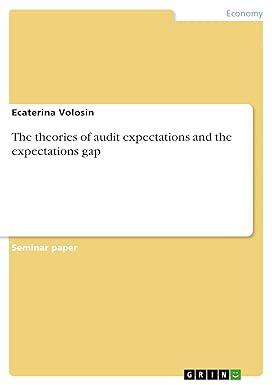Answered step by step
Verified Expert Solution
Question
1 Approved Answer
Here are simplified financial statements for Phone Corporation in a recent year: INCOME STATEMENT (Figures in $ millions) Net sales $ 12,700 Cost of goods
| Here are simplified financial statements for Phone Corporation in a recent year: |
| INCOME STATEMENT (Figures in $ millions) | |
| Net sales | $ 12,700 |
| Cost of goods sold | 3,810 |
| Other expenses | 4,112 |
| Depreciation | 2,368 |
|
| |
| Earnings before interest and taxes (EBIT) | $ 2,410 |
| Interest expense | 660 |
| Income before tax | $ 1,750 |
| Taxes (at 30%) | 525 |
| Net income | $ 1,225 |
| Dividends | $ 826 |
| BALANCE SHEET | |||||||||
| (Figures in $ millions) | |||||||||
| End of Year | Start of Year | ||||||||
| Assets | |||||||||
| Cash and marketable securities | $ | 84 | $ | 153 | |||||
| Receivables | 2,132 | 2,390 | |||||||
| Inventories | 162 | 213 | |||||||
| Other current assets | 842 | 907 | |||||||
| Total current assets | $ | 3,220 | $ | 3,663 | |||||
| Net property, plant, and equipment | 19,923 | 19,865 | |||||||
| Other long-term assets | 4,166 | 3,720 | |||||||
| Total assets | $ | 27,309 | $ | 27,248 | |||||
| Liabilities and shareholders equity | |||||||||
| Payables | $ | 2,514 | $ | 2,990 | |||||
| Short-term debt | 1,394 | 1,548 | |||||||
| Other current liabilities | 786 | 762 | |||||||
| Total current liabilities | $ | 4,694 | $ | 5,300 | |||||
| Long-term debt and leases | 8,263 | 7,728 | |||||||
| Other long-term liabilities | 6,128 | 6,099 | |||||||
| Shareholders equity | 8,224 | 8,121 | |||||||
| Total liabilities and shareholders equity | $ | 27,309 | $ | 27,248 | |||||
| Calculate the following financial ratios for Phone Corporation: (Use 365 days in a year. Do not round intermediate calculations. Round your percentage answers "Return on equity", "Return on assets", Return on capital" and "Operating profit margin" to 2 decimal places and the rest to 2 decimal places.) |
|
| |||
| a. | Return on equity (Use average equity.) | % | |
| b. | Return on assets (Use after-tax operating income and average assets.) | % | |
| c. | Return on capital (Use after-tax operating income and average capital.) | % | |
| d. | Days in inventory (Use beginning inventory.) | days | |
| e. | Inventory turnover (Use beginning inventory.) | ||
| f. | Average collection period (Use beginning receivables.) | days | |
| g. | Operating profit margin (Use after-tax operating income.) | % | |
| h. | Long-term debt ratio (Use end of year values.) | ||
| i. | Total debt ratio (Use end of year values.) | ||
| j. | Times interest earned | ||
| k. | Cash coverage ratio | ||
| l. | Current ratio (Use end of year values.) | ||
| m. | Quick ratio (Use end of year values.) |
Step by Step Solution
There are 3 Steps involved in it
Step: 1

Get Instant Access to Expert-Tailored Solutions
See step-by-step solutions with expert insights and AI powered tools for academic success
Step: 2

Step: 3

Ace Your Homework with AI
Get the answers you need in no time with our AI-driven, step-by-step assistance
Get Started


